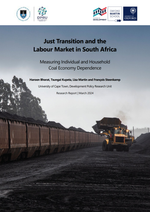World Economic Forum
View ReportMeeting the world’s growing demand for protein nutrition through sources of protein other than meat could prevent millions of unnecessary deaths per year and drastically reduce greenhouse gas emissions, according to new research conducted by the Oxford Martin School for the World Economic Forum. The report, Alternative Proteins, part of WEF's Meat: the future series, also finds that the nutritional needs for a future world population of 10 billion can be met sustainably, and with positive health consequences, through a combination of innovative protein sources, improved production systems and changed consumer behaviour.
The report is unique in its focus on both the human health and environmental impacts of meat consumption. For human health, the research finds that switching from beef – the base case of the analysis – to other protein sources could reduce the overall global burden of diet-related deaths by 2.4%, with that number climbing to 5% in high- and upper-middle-income countries. This will be increasingly important given the projected demand for meat from emerging middle classes.
At the same time, in terms of environmental impact, 2010 data shows that production of beef alone was responsible for 25% of all food-related greenhouse gas emissions. With demand for protein set to soar, such demand will place huge pressure on the environment. The report finds a striking difference between the greenhouse gas emissions of beef production and other sources of protein. While beef, for example, has an emissions intensity of 23.9 kilograms of CO2 equivalent per 200kcal, beans, insects, wheat and nuts emit 1 kilogram or less CO2 equivalent for the same nutritional value. Other sources such as tofu, pork, alga and chicken produce only 3-6 kilograms CO2 equivalent.
The 13 sources of protein analysed in the report include beef, pork and chicken; fruits and vegetables that can be eaten naturally or processed, such as beans and peas; processed non-animal substitutes such as tofu, wheat-gluten products or mycoprotein; and novel products such as cultured meat, insects and alga spirulina.





